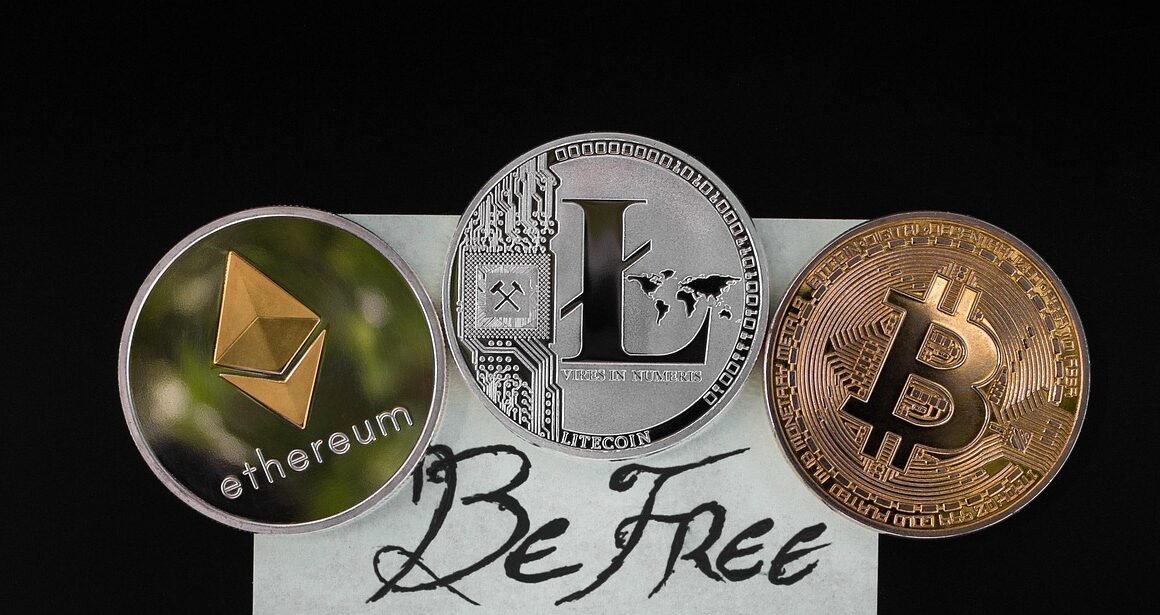Privacy coins have emerged as a critical response to the increasing surveillance and data collection surrounding cryptocurrency transactions. While Bitcoin and other popular cryptocurrencies offer a degree of pseudonymity, transactions can still be traced back to individuals through sophisticated blockchain analysis. Privacy coins, on the other hand, employ advanced cryptographic techniques to ensure transaction anonymity, protecting users’ financial privacy in an increasingly transparent digital world. This blog post delves into the world of privacy coins, exploring their mechanisms, benefits, challenges, and real-world implications.
What are Privacy Coins?
Privacy coins are cryptocurrencies designed to obscure the details of transactions on a blockchain, specifically the sender, receiver, and amount involved. Unlike traditional cryptocurrencies where transaction details are often publicly available (though not necessarily linked to a real-world identity directly), privacy coins utilize various cryptographic techniques to enhance anonymity and confidentiality.
Key Features of Privacy Coins
- Anonymity: Protecting the identities of senders and receivers.
- Untraceability: Making it difficult to trace the flow of funds between wallets.
- Confidentiality: Hiding the transaction amounts from public view.
How Privacy Coins Differ from Bitcoin
Bitcoin transactions are pseudonymous, meaning that while user identities are not directly linked to transactions, wallet addresses can be tied to individuals or entities through various means, such as exchange registration or IP address tracking. Privacy coins directly address this weakness by incorporating technologies that make it significantly harder, if not impossible, to link transactions to specific users.
Types of Privacy Technologies
Privacy coins employ various cryptographic methods to achieve anonymity and confidentiality. Understanding these technologies is key to appreciating the nuances between different privacy coins.
Ring Signatures
Ring signatures allow a user to sign a transaction on behalf of a group of users (a “ring”) without revealing which specific user is the actual signer. This creates ambiguity and makes it harder to trace the origin of the transaction. Monero is a prominent example of a privacy coin that uses ring signatures.
- Example: Imagine a group of five people, where one of them wants to send money. With a ring signature, the transaction looks like it could have come from any of the five, masking the actual sender.
Stealth Addresses
Stealth addresses generate a new, unique address for each transaction, preventing anyone from linking multiple transactions to a single user’s address. This is often used in conjunction with ring signatures to provide further anonymity. Monero also utilizes stealth addresses.
- Example: Instead of constantly using the same Bitcoin address, a stealth address creates a new, single-use address for each payment, like using a disposable envelope for every letter you send.
zk-SNARKs (Zero-Knowledge Succinct Non-Interactive Arguments of Knowledge)
zk-SNARKs are a type of zero-knowledge proof that allows one party to prove to another that they possess certain information without revealing the information itself. This can be used to verify transactions without disclosing transaction details. Zcash is a well-known privacy coin that utilizes zk-SNARKs, offering both shielded (private) and transparent (public) transaction options.
- Example: Think of proving you know the answer to a math problem without actually showing the answer itself. You only show that you are capable of solving the problem.
Mimblewimble
Mimblewimble is a blockchain format and protocol that offers inherent privacy features by aggregating transactions and removing identifying information from the blockchain. This results in a more compact and scalable blockchain. Grin and Beam are two notable cryptocurrencies built on the Mimblewimble protocol.
- Example: Imagine taking several small receipts and combining them into a single, summarized bill, removing the individual itemized details but still proving the overall expense amount.
Benefits of Using Privacy Coins
The increasing demand for privacy coins stems from the inherent benefits they offer to users in various contexts.
Enhanced Financial Privacy
The primary benefit of privacy coins is the enhanced financial privacy they provide. Users can transact without fear of their financial activities being scrutinized by third parties.
- Example: A business owner can pay suppliers without competitors knowing their transaction amounts.
Protection Against Surveillance
In an era of increasing surveillance, privacy coins offer a way to protect oneself against unwarranted monitoring of financial transactions.
- Example: An activist can donate to a cause without revealing their identity and risking potential repercussions.
Circumventing Censorship
In countries with strict financial controls or censorship, privacy coins can be used to circumvent restrictions and facilitate transactions without government oversight.
- Example: A journalist can receive funds for investigative reporting in a country where independent media is suppressed.
Fungibility
Fungibility refers to the property of a currency where each unit is interchangeable with any other unit. Because Bitcoin transactions can be traced, some Bitcoins might be “tainted” by association with illicit activities, making them less desirable. Privacy coins enhance fungibility by making all coins equally valuable, as their transaction history is obscured.
- Example: A privacy coin transaction history remains opaque, so there is no way to discriminate between coins based on previous use.
Challenges and Criticisms of Privacy Coins
Despite their benefits, privacy coins face several challenges and criticisms that need to be considered.
Regulatory Scrutiny
Governments and regulatory bodies are often wary of privacy coins due to concerns about their potential use in illicit activities such as money laundering and terrorism financing. This can lead to increased regulatory scrutiny and potential delisting from cryptocurrency exchanges.
- Example: Several exchanges have delisted privacy coins due to regulatory pressure.
Scalability Issues
Some privacy technologies, such as zk-SNARKs, can be computationally intensive and may impact the scalability of the blockchain.
- Example: Zcash transactions are often larger than Bitcoin transactions, requiring more resources to process.
Complexity
Implementing and using privacy coins can be complex for the average user, requiring a deeper understanding of cryptography and blockchain technology.
- Example: Setting up a Monero wallet and using ring signatures and stealth addresses can be challenging for beginners.
Potential for Illicit Use
While privacy coins can be used for legitimate purposes, they can also be exploited by criminals seeking to conceal their financial activities. This association can damage the reputation of privacy coins and hinder their adoption.
- Example: Law enforcement agencies are increasingly focused on tracking and combating the use of privacy coins in illegal activities.
Practical Applications of Privacy Coins
Despite the challenges, privacy coins have numerous practical applications beyond simply hiding illicit transactions.
Secure Online Shopping
Users can use privacy coins to make online purchases without revealing their financial information to merchants or third-party payment processors.
- Example: Buying sensitive health products or services anonymously.
International Remittances
Privacy coins can facilitate cross-border remittances without the high fees and scrutiny associated with traditional money transfer services.
- Example: Sending money to family members in another country without incurring excessive charges or reporting requirements.
Protecting Business Transactions
Businesses can use privacy coins to protect their financial data from competitors and maintain confidentiality in business dealings.
- Example: A company can pay suppliers without revealing the transaction details to rivals.
Charitable Donations
Donors can use privacy coins to anonymously support charitable causes without revealing their identities or risking unwanted attention.
- Example: Donating to a controversial organization without facing potential backlash.
Conclusion
Privacy coins offer a valuable alternative to traditional cryptocurrencies by providing enhanced anonymity and confidentiality. While they face challenges related to regulatory scrutiny and potential misuse, their benefits for protecting financial privacy, circumventing censorship, and enabling secure transactions are undeniable. As the debate surrounding digital privacy intensifies, privacy coins are likely to remain a relevant and evolving component of the cryptocurrency landscape. Understanding the different types of privacy technologies and their associated trade-offs is crucial for anyone seeking to navigate the complexities of the digital finance world. It is crucial to remember to conduct thorough research and consider the legal and ethical implications before engaging with privacy coins.



